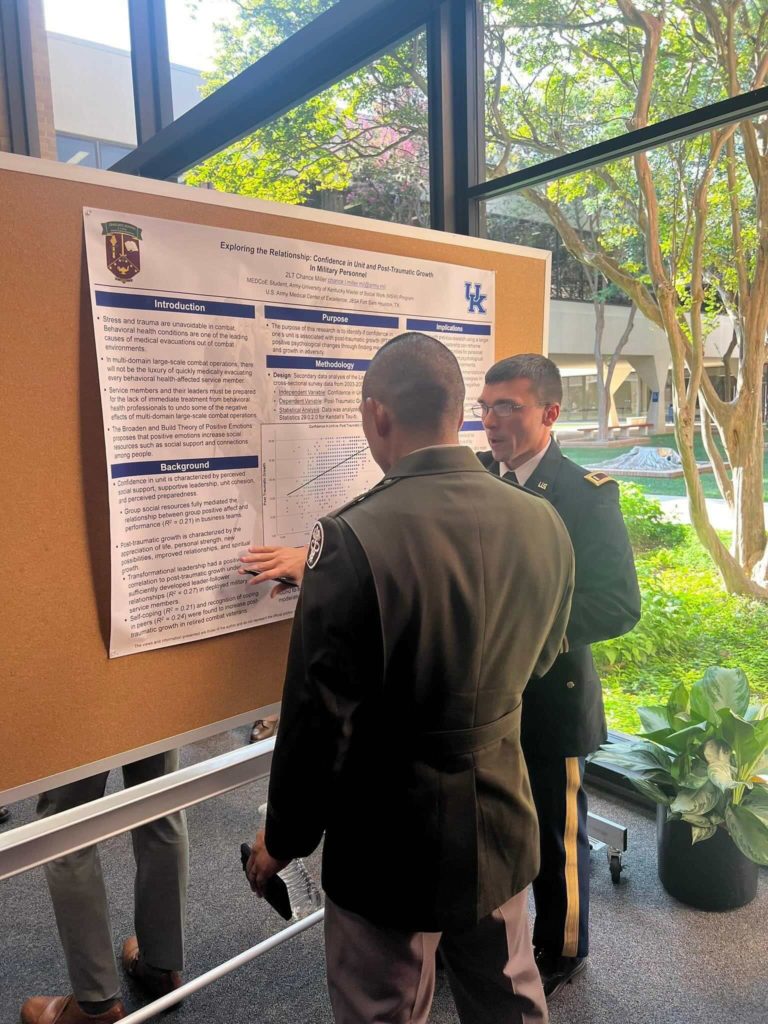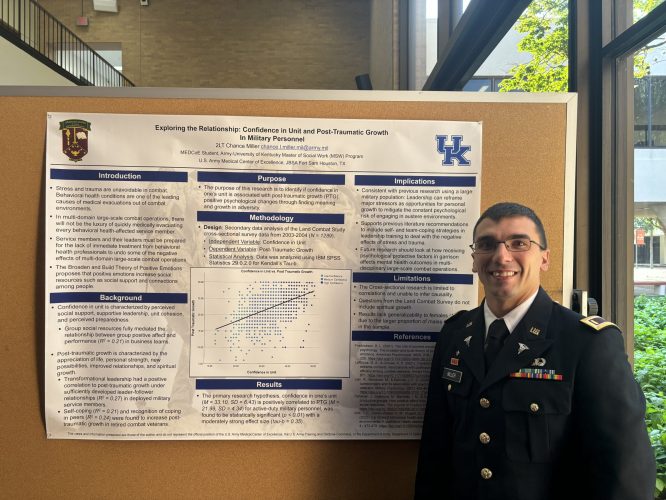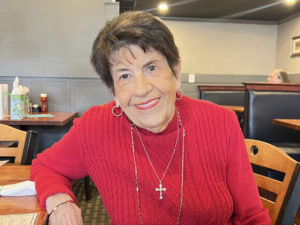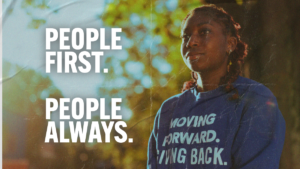San Antonio, Texas (September 3, 2024) – Chance Miller, a student in the Army-UK Master of Social Work (MSW) program, was awarded at the U.S. Army Medical Center of Excellence’s Research and Education Symposium. Miller won best primary research poster in the student category for his work titled, “Exploring the Relationship: Confidence in Unit and Posttraumatic Growth in Military Personnel”.
Miller’s research explores the concept of “confidence in unit,” which refers to a soldier’s perception and preparedness within their unit, including leadership and operational readiness. His work examines how this confidence positively correlates with posttraumatic growth—a process of positive psychological development that can result from experiencing stressful life events. Miller emphasizes that understanding and fostering posttraumatic growth is crucial, particularly in large-scale combat operations where aerial medical evacuation of psychological casualties are less likely to happen.
“This research is needed,” Miller said, emphasizing the evolving nature of military engagements and the growing emphasis on resilience among soldiers.
Miller’s research has far-reaching implications, particularly in the role of military behavioral health providers, unit commanders, and frontline leaders. They must arm both troops and their leaders with the resources needed to cultivate resilience and foster posttraumatic growth—a concept that may help reduce the adverse symptoms of posttraumatic stress disorder (PTSD) in the ranks.

Miller attributes much of his growth as a researcher to the mentorship of Dr. Bicknell and Dr. Oliver, research professors at Fort Sam Houston. Their guidance and constructive feedback have been pivotal in broadening his viewpoint and refining his approach to both research and social work.
“What it comes down to is perspective,” Miller explains, elaborating on his belief in the power of understanding and empathy. “My guiding philosophy is this: orchestrate hope with people to honor our freedoms to be unique so that together we can live in positive harmony.”
This principle is at the heart of both his approach in social work and his role in the U.S. Army.
Miller’s journey to the Army-UK MSW program at Fort Sam Houston began after nearly three years of active-duty service in the Army, where he served as a logistics platoon leader—a role he fondly remembers. His company, the ROADRUNNERS, was a source of inspiration in his research.
“My old command team exemplified the importance of a positive culture,” Miller shared. “They were open about behavioral health, actively supported programs for mental, physical, and emotional well-being, and fostered an environment where everyone could be their best. Their emphasis on heart, focus, and mental health inspired my research.”
Before joining the U.S. Army, Miller earned a master’s degree in industrial-organizational psychology, which has greatly influenced his role as a military officer. While Miller was an undergraduate, a mentor encouraged him to pursue social work. Seven years later, Miller reflects that he’s found the perfect career.
“I get to serve my country, help others, and consult with leaders,” Miller shared.
As a behavioral health officer, Miller will be engaged in more than just clinical work—he will also participate in leadership training, change management, and provide recommendations on socio-environmental factors that impact unit effectiveness.
He also acknowledges the unwavering support of his mother and his Nana, whose encouragement has been a cornerstone of his success. Miller fondly recalls a short note his mother sent during Basic Combat Training that reminded him he was “halfway there” and encouraged him to keep pushing forward.
For those interested in learning more about the Army MSW program, you can find more information here. If you are interested in connecting with Chance Miller, he is open to sharing his experiences and insights. He embodies the belief that “it takes a village,” emphasizing the importance of community and support in both personal and professional endeavors.
It is important to note that the views expressed in Miller’s research are his own and do not reflect the official positions of the U.S. Army, Department of Defense, or the military as a whole.






